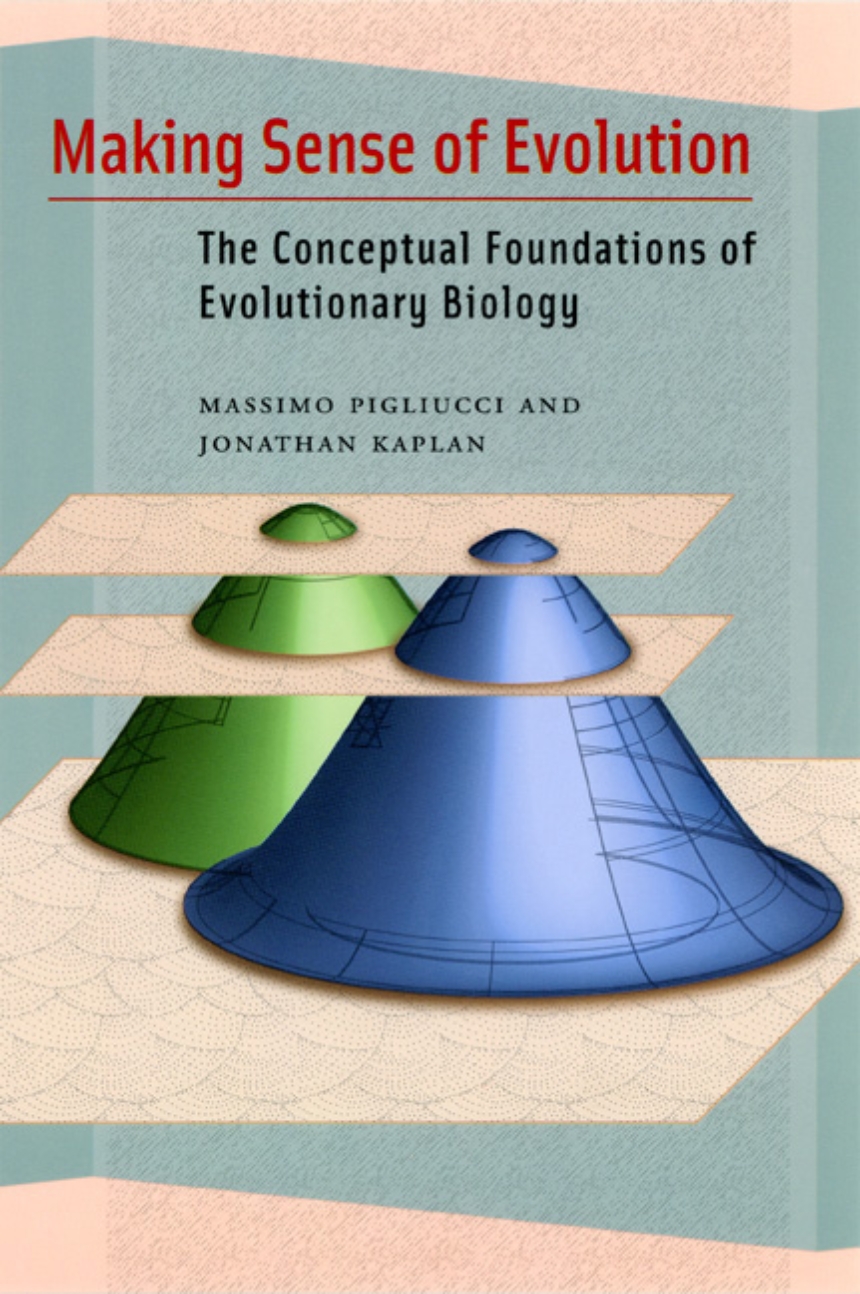Making Sense of Evolution
The Conceptual Foundations of Evolutionary Biology
Making Sense of Evolution
The Conceptual Foundations of Evolutionary Biology
Making Sense of Evolution explores contemporary evolutionary biology, focusing on the elements of theories—selection, adaptation, and species—that are complex and open to multiple possible interpretations, many of which are incompatible with one another and with other accepted practices in the discipline. Particular experimental methods, for example, may demand one understanding of “selection,” while the application of the same concept to another area of evolutionary biology could necessitate a very different definition.
Spotlighting these conceptual difficulties and presenting alternate theoretical interpretations that alleviate this incompatibility, Massimo Pigliucci and Jonathan Kaplan intertwine scientific and philosophical analysis to produce a coherent picture of evolutionary biology. Innovative and controversial, Making Sense of Evolution encourages further development of the Modern Synthesis and outlines what might be necessary for the continued refinement of this evolving field.
236 pages | 9 halftones, 10 tables | 6 x 9 | © 2006
Biological Sciences: Behavioral Biology, Biology--Systematics, Ecology, Evolutionary Biology, Natural History
Reviews
Table of Contents
Prelude - Evolutionary Biology and Conceptual Analysis
1. Natural Selection and Fitness: After the "Force" Metaphor
2. How (Not) to Measure Natural Selection
3. The Targets and Units of Selection: Individual Events and Population Dynamics
4. Studying Constraints through G-Matrices: Is Evolutionary Quantitative Genetics Looking in Vain for the Holy Grail?
5. A Quarter Century of Spandrels: Adaptations, Adaptationisms, and Constraints in Biology
6. Functions and For-ness in Biology
7. Testing Adaptive Hypotheses: Historical Evidence and Human Adaptations
8. Slippery Landscapes: The Promises and Limits of the Adaptive Landscape Metaphor in Evolutionary Biology
9. Species as Family Resemblance Concepts: The (Dis-)Solution of the Species Problem?
10. Testing Biological Hypotheses: The Detective versus the Statistician
Coda - A Philosophical Dialogue
References
Index
